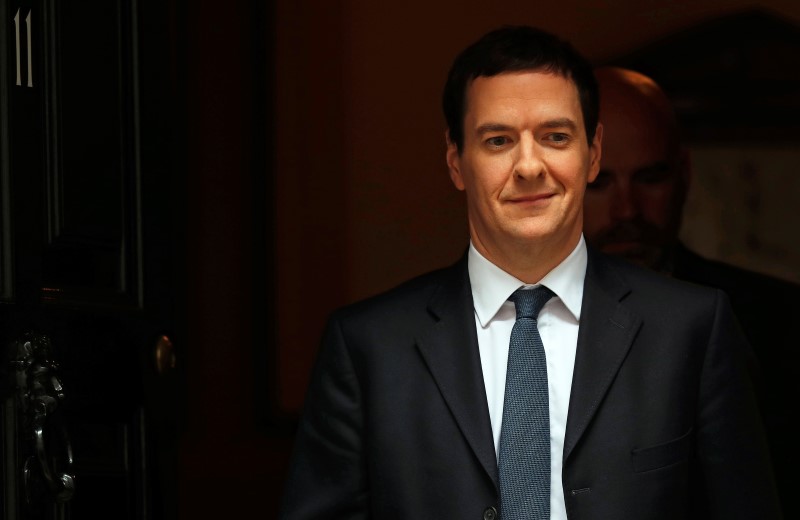Gold prices set for weekly gains on dovish Fed outlook; silver near record high
LONDON (Reuters) - Chancellor George Osborne said the country's home-owners could face higher borrowing costs if voters decide to leave the European Union in a referendum in June, building on his warnings against a so-called Brexit.
"The Bank of England is independent and it makes its decisions on interest rates," Osborne told BBC television in Washington where he is attending a half-yearly meeting of global finance officials at the International Monetary Fund.
"But the overwhelming view of the experts here in Washington is that if Britain leaves the EU, prices would go up and there would be instability in financial markets," he said.
"That means it's likely that mortgage rates would go up, families would pay the price of Britain leaving the EU."
Osborne and Prime Minister David Cameron are trying to persuade voters to choose to stay in the EU on June 23. Campaigners who want Britain out of the bloc accuse the "In" campaign of resorting to scare tactics and say the country's economy would flourish if it left the EU.
Opinion polls have shown voters are split almost 50-50.
Earlier this week, the IMF said Britain could deal a damaging blow to the fragile global economy if it votes to leave the bloc.
Some analysts say that a sharp fall in the value of sterling, which could follow a Brexit vote, might prompt the BoE to raise interest rates to fight the inflationary impact of a weaker currency.
But most economists taking part in a Reuters poll this week said the BoE would probably cut rates in the event of a Brexit in order to offset the shock to the economy.
